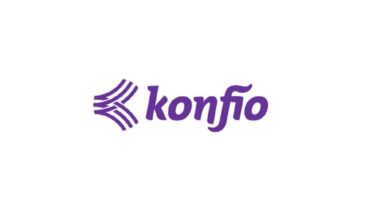According to Antonio Nunes, Latin American families spend up to four hours per week in the supermarket. When combined with crippling traffic and safety concerns in many Latin American cities, it becomes clear why delivering groceries in Latin America could be a highly lucrative business. Antonio Nunes noticed that opportunity while living in Bogota and sold everything to go on a mission to deliver Latin America’s groceries in under an hour.
In this episode, I sat down with Portuguese entrepreneur, Antonio Nunes, to talk about why Latin America is growing so quickly, why last-mile delivery is a better business in LatAm than in the US or Europe, and what he has learned in his journey doing business across borders.
People who want to start companies want to change the world
Antonio’s first entrepreneurial experience involved founding an NGO in Mozambique when he was 19 years old. He was focused on making it possible for budding entrepreneurs from anywhere in the world to develop and test their ideas because he believes entrepreneurs are people who want to change the world they live in. This project marked the first step in Antonio’s career in international entrepreneurship that would take him from Asia to Latin America. Find out how Antonio started supporting global entrepreneurship in Lusophone Africa in this episode of Crossing Borders.
Scaling e-commerce businesses in Asia and Latin America
Antonio scaled a fashion e-commerce business in Singapore from a Starbucks office to a 500-person business in just nine months, knowing little about e-commerce and nothing about fashion. When Rocket Internet brought him to Bogota to build Linio, Antonio was prepared to build Latin America’s Amazon. Linio now operates in Chile, Colombia, Argentina, Mexico, Ecuador, Peru, and Venezuela. Check out to episode to learn how building Linio inspired Antonio to found Mercadoni.
Why last-mile delivery is a big opportunity in Latin America
Latin America is growing and changing much faster than the United States as it leapfrogs over legacy technologies, like landline phones, that hold the US and Europe back. Last-mile delivery has grown particularly fast, with Mercadoni’s competitors like Rappi and Cornershop receiving investment from the US this year. Antonio considers that the tight competition for Latin America’s last-mile delivery market validates this US$300B market opportunity. Antonio explains the unit economics of Latin American delivery services, and why these numbers are better than in the US, in this episode.
Delivering fresh fruit means Mercadoni is living its mission
Mercadoni seeks to replace grocery store runs for busy Latin Americans so they can focus on their families, jobs, and friends. Of the top ten items ordered through the app, eight are fresh products, including bananas, tomatoes, and meat. According to Antonio, this pattern means Mercadoni is serving its purpose; people are trusting others to choose even their products, one of the hardest items to buy.
Antonio is a serial entrepreneur who has spent his whole career building businesses across borders, first in Mozambique, then Singapore, then in Colombia. His most recent venture, Mercadoni, is fighting for market share in one of Latin America’s most competitive industries, with support from the Brazilian tech giant, Movile. Find out more about the opportunities in last-mile delivery and tech in Latin America in this episode of Crossing Borders.
Show Notes:
- [1:48] – Nathan introduces Antonio
- [3:08] – Why last-mile delivery in Latin America?
- [6:30] – Antonio’s first time doing business across borders in Mozambique
- [10:30] – Rocket Internet’s model of building a business
- [12:08] – Why Antonio does business across borders
- [17:10] – Surround yourself with people you love working with
- [19:24] – How to get from Singapore to LatAm
- [22:19] – The US$300B Latin American grocery industry
- [24:45] – What it’s like to live and work in Colombia
- [27:00] – Why does Latin America change so much faster than the US?
- [30:48] – Trends Antonio sees for the Latin American middle class
- [32:25] – The decision to leave Linion
- [34:37] – Antonio’s approach to fundraising
- [39:09] – What did you learn from fundraising in Colombia?
- [40:36] – Selling his furniture to get Mercadoni off the ground
- [44:37] – What people buy on Mercadoni
- [48:00] – How unit economics affect Mercadoni’s success
- [49:40] – Why Mercadoni’s competitors validate the market opportunity
- [53:02] – Antonio’s advice to his younger self
Resources and People Mentioned:


